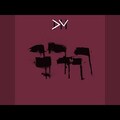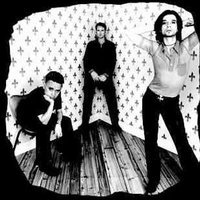Közös barátunk, a Google Translate szponzorálásával:
"You know that we're sinking, but I'm not going to fall, "Depeche Mode sings on one of Spirit's tracks, his new album, a compendium of songs that are predominantly slow and quiet, even ethereal, that open a spit to optimism and talk about recovering from The evils of the heart, or to heal the collective soul.
To this last group belongs the promising and well-known "Where's the revolution", a deceptive bait for those who see in him a pattern of the general "spirit" of the disc, that will become the fourteenth of study for the British band when the March 17th all over the world.
Produced by James Ford, member of Simian Mobile Disco and previous collaborator of Foals and Arctic Monkeys, the result said Dave Gahan is an album "with great force, not only in sound but also in the message."
As Efe could verify in a hearing organized by Sony Music, among the 12 cuts that integrate it there are none however approaching the first single in that concentrated and pre-emptive intensity that made salivating the nostalgic of the profile with more mordant Depeche Mode .
Musically, in fact, it is rather an evolution on the previous "Delta machine," a work published four years ago that many critics rated its more sophisticated sound, but which they attributed loss of freshness and stuck and a recalcitrant taste for Leave no room for light and hope.
There is the main change of "Spirit", which, on its classic bass line, starts with the arid rock reflection of "Going backwards": "We have lost control, we go back," sings Dave Gahan, before singing Insistently towards the end of the cut that "we feel nothing inside."
In a logical narrative sequence, the group then raised the call to common consciousness, first with the explosive "Where's the Revolution", then with silk glove in the ballad "The worst crime", in which an evocative guitar laments " How can we commit the worst crime? "
From there, after the "impasse" of "Scum", the tone becomes more luminous, for example with the playful sensuality of "You move" ("I like the way in which you move", Gahan interprets on a line Clean of synthesizer) or, in a communal area, with the spiritual "Cover me", balsamic theme of the album that begins with a "I feel better".
The love first becomes a protagonist with Martin Gore in front of the microphone in "Eternal", elegy of organista, later in the baladístico reproach of "Poison heart", to end with "So much love ", Catharsis danceable by the most important affection of all: the one who professes himself to face contempt.
The chronicle of this sentimental rupture reaches its culmination after the filling of "Poorman" ("The poor men continue to have the blues"). It happens in "No more (this is the last time)", another sinuous cut in which the protagonist cuts a dysfunctional relation.
"Fail", at the end of the album, retrieves the collective message in a sort of ecclesiastical song, parsimonious as a procession, with the voice of Gahan sounding sweet in this last reflection on society and human dignity.
This will conclude "Spirit," which will include a vinyl version and a deluxe double CD, with 5 remixes created by Depeche Mode, Matrixxman and Kurt Uenala and a special 27-page booklet, such as the rest of the album artwork, By his inseparable Anton Corbijn.
A few weeks after his departure, Martin Gore, Dave Gahan and Andrew Fletcher will also be on the road to perform live on a tour that will start on May 5 in Stockholm and will feature 32 concerts in 21 countries across Europe , Including a stop at the Bilbao BBK Live festival."




